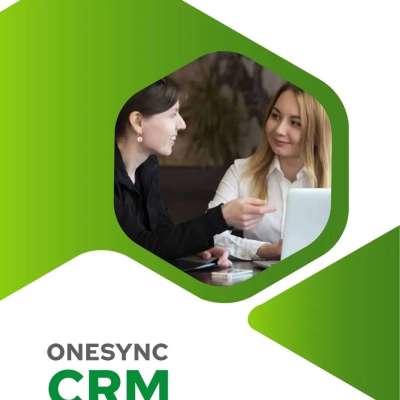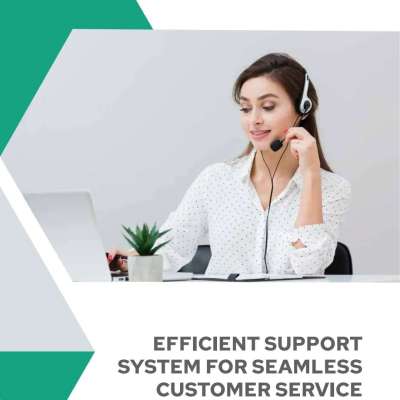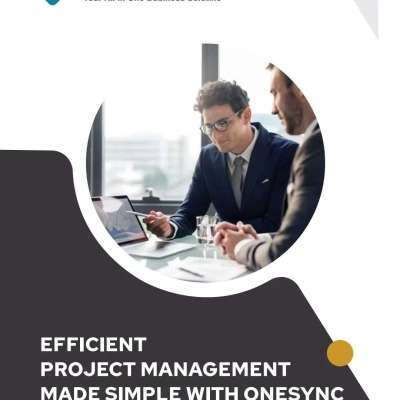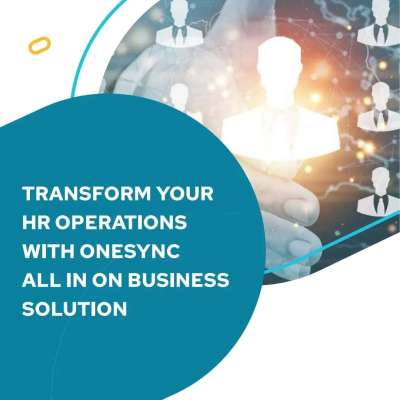
Onesync CRM
Published By Onesync All In One Business Solution
- StatusIn stock
- TypeNew
Onesync ERP's CRM (Customer Relationship Management) Software is a central component of their all-in-one business solution, designed to help businesses build and nurture strong customer relationships, improve sales and marketing efforts, and enhance overall customer satisfaction. Here's an overview of what you can typically expect from Onesync ERP's CRM Software:
**1. Contact Management:** Onesync ERP's CRM allows businesses to store and manage customer and prospect contact information in a centralized database. This includes names, addresses, phone numbers, email addresses, and other relevant details.
**2. Lead and Opportunity Management:** The CRM system helps businesses track leads and sales opportunities. Users can capture and categorize leads, assign them to sales representatives, and monitor the progress of each opportunity through the sales pipeline.
**3. Sales Automation:** Automation features streamline the sales process. Onesync ERP's CRM may automate tasks such as lead assignment, follow-up reminders, and email communication, reducing manual work and improving efficiency.
**4. Customer Interaction History:** Businesses can record and view a history of interactions with customers and prospects. This includes emails, phone calls, meetings, and notes. This history provides valuable context for sales and support interactions.
**5. Email Integration:** Many CRMs, including Onesync ERP's, offer email integration, allowing users to send and receive emails directly from the CRM interface. This helps centralize communication and track email interactions.
**6. Sales Forecasting:** Onesync ERP's CRM often includes sales forecasting tools. Users can predict future sales based on historical data and current opportunities, aiding in sales planning and resource allocation.
**7. Marketing Automation:** Some CRM systems integrate marketing automation features. Users can create and execute marketing campaigns, track campaign performance, and nurture leads through automated workflows.
**8. Customer Segmentation:** The CRM software allows for customer segmentation based on various criteria, such as demographics, behavior, or purchase history. This helps businesses target specific customer groups with tailored marketing messages.
**9. Reporting and Analytics:** Onesync ERP's CRM provides access to reports and analytics, enabling users to assess sales performance, monitor customer engagement, and measure the effectiveness of marketing campaigns.
**10. Integration:** Seamless integration with other modules of the Onesync ERP system, such as accounting, inventory management, and project management, ensures that customer data is synchronized across the organization. This integration enhances data consistency and efficiency.
**11. Mobile Accessibility:** Many modern CRM systems offer mobile apps or responsive web interfaces, allowing sales and support teams to access customer data and manage relationships while on the go.
**12. Security:** Security measures are essential to protect customer data. Onesync ERP's CRM software typically includes encryption, access controls, and user authentication to ensure data security and privacy.
**13. Customer Support Integration:** Integration with customer support systems allows for a holistic view of customer interactions. Businesses can provide better support by accessing customer history and context.
In summary, Onesync ERP's CRM Software is a powerful tool for managing customer relationships, optimizing sales processes, and enhancing marketing efforts. It empowers businesses to deliver personalized experiences, improve customer satisfaction, and drive growth by efficiently managing customer interactions and data.





